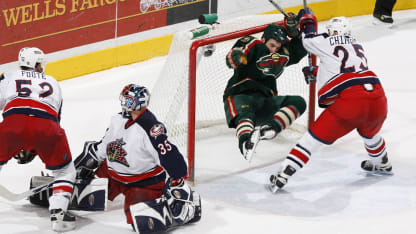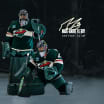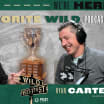The Predators were the first of four new teams that helped the NHL expand from 26 teams to 30. The Atlanta Thrashers began play one year after Nashville in 1999 before Minnesota and Columbus started in 2000. The Thrashers moved to Winnipeg in 2011 and became the reincarnation of the Jets.
Leipold said it's fun to see how those teams have developed through the years. While Minnesota was a ready-made hockey market, Nashville took time and effort. It's now a model for the new team in Las Vegas to follow.
Hockey in Atlanta didn't work, but the team has thrived in Winnipeg.
Columbus has a history of hockey at the lower levels, but it took the Jackets seven years to reach their first postseason, then four more years to get there a second time.
After missing the playoffs each of the past two seasons, Columbus' passion for hockey has been reignited with the current win streak and the success so far this season. The Blue Jackets enter the game Saturday with the best record in the NHL.
"I was thinking about that the other day, It is pretty hard to believe that we've got Columbus and Minnesota here, fighting neck and neck," said Wild owner Craig Leipold. "It's taken Columbus a longer period of time to get here, but clearly they've done it through the draft; they've done it right. We look at their team and their strengths and weaknesses and it's pretty close to us. It's kind of fun to see your brethren among the top two or three teams in the League."
For former Wild forward Wes Walz, a fan favorite from the team's early years in the NHL, the two new franchises offered him and 39 others an opportunity to continue their professional careers.
Walz had played in 169 NHL games between the 1989-90 season and 1995-96, but after playing in just two games with Detroit, Walz went to Europe and played three seasons in Switzerland.
When Minnesota and Columbus came online in 2000, Walz got one final opportunity to make it in the NHL. He played six more seasons and part of a seventh with the Wild before retiring from hockey in 2007, accumulating 438 games in a Wild sweater.
"Truthfully, I probably would not have played another NHL game if they wouldn't have expanded," Walz said. "It gave 40 guys an opportunity to live their dream."
Walz said it's been interesting to see the two markets grow over the past decade and a half. And while the two clubs are still considered expansion teams for only a few more months, it's doesn't seem like much time has passed since they were the new kids on the block.
"It's amazing, just to see the expansion teams. Honestly, it's hard to believe it's been 16 years," Walz said. "I still remember coming through the chute for game one against the Philadelphia Flyers. It feels like it was yesterday."



















